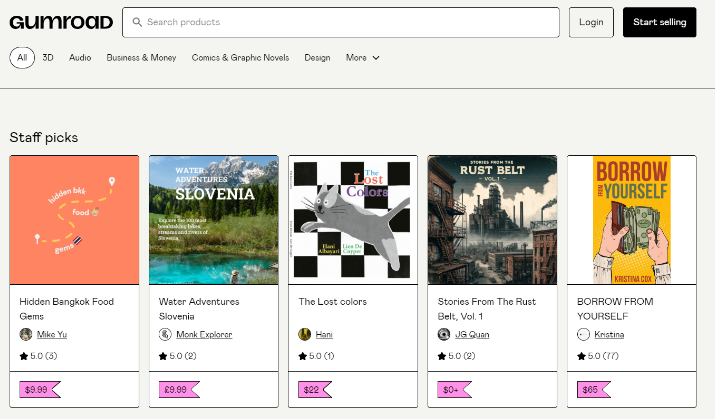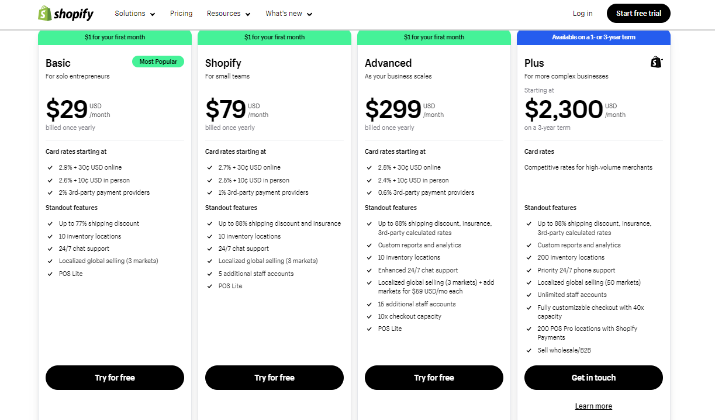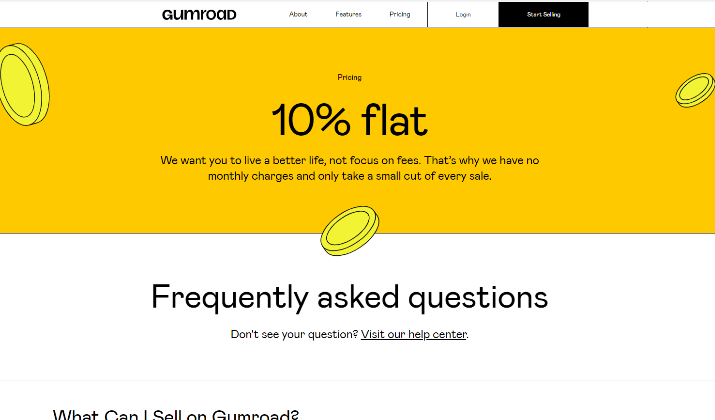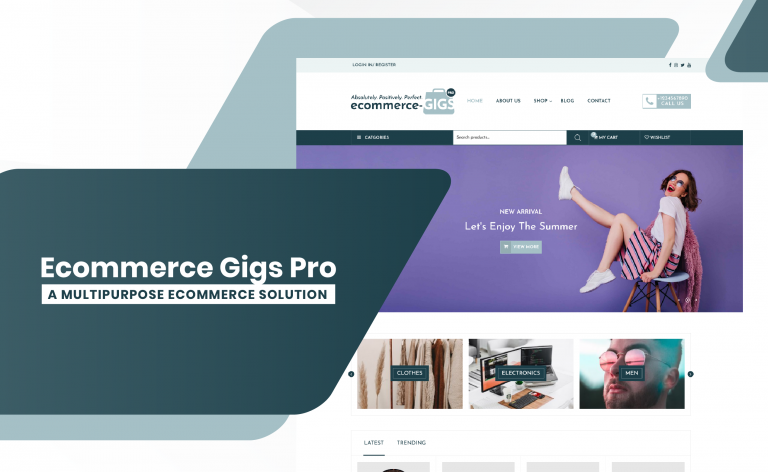When it comes to selling digital products online, there are two popular platforms to choose from: Shopify and Gumroad.
Both platforms are easy to set up and maintain, but which one is truly the better option for your online business?
Are you ready to challenge common beliefs and dive into a detailed comparison?
In this article, we will compare the features and benefits of Shopify and Gumroad to help you make an informed decision.
From sales and growth potential to customization and marketing tools, we’ll explore it all.
So, are you ready to discover which platform will elevate your online business to new heights? Let’s find out.
Features and Benefits
Shopify
Shopify offers a wide range of features and benefits for online businesses.
One of the key advantages of Shopify is the ability to create a fully functional ecommerce website with customizable themes and design options. This allows businesses to create a unique and professional online store that reflects their brand.
With Shopify, you have the freedom to customize your website to match your brand identity and create a seamless shopping experience for your customers.
Whether you want to showcase your products with stunning visuals or highlight unique features, Shopify’s extensive customization options allow you to tailor your store to your specific needs.
Additionally, Shopify provides a range of marketing tools to help businesses grow their sales and reach a larger audience.
From built-in SEO optimization to email marketing campaigns and social media integration, Shopify equips you with the necessary tools to attract and engage customers effectively.
Using Shopify’s powerful marketing tools, you can create targeted campaigns, track customer behavior, and optimize your online store for increased conversions.
The platform also supports advertising campaigns, allowing you to reach a wider audience and drive more traffic to your store.
Try Shopify free followed by first month at just $1. No credit card required. Limited Time Offer.
Gumroad
Gumroad is known for its simplicity and ease of use. It offers a basic platform for selling digital products and allows you to embed your products directly on your websites or blogs, giving you seamless integration with your existing online presence.
This makes it convenient for content creators, artists, and entrepreneurs who want to sell their products without the hassle of setting up a separate online store.
Gumroad also offers a free plan, which is a great option for those starting out on a budget. With the free plan, you can start selling your digital products right away without any upfront costs.
This allows you to test the waters and see if Gumroad is the right platform for your business before committing to a paid plan.
However, it’s important to note that Gumroad has some limitations compared to Shopify. While Gumroad offers simplicity and ease of use, it has fewer customization options available for your store’s design and layout compared to Shopify.
Gumroad also lacks advanced marketing tools that are available on other platforms like Shopify. It doesn’t offer the same level of sophistication and automation that Shopify’s marketing tools provide.
If marketing and growth are priorities for your business, you may find the marketing capabilities on Gumroad to be limited.
Pricing Comparison
When comparing Shopify and Gumroad, it is important to consider the pricing plans. Shopify offers different pricing tiers starting at $29 per month, while Gumroad has a flat fee of 10% of every sale.
Shopify
Shopify offers a range of pricing plans tailored to meet the diverse needs of businesses:
- Basic Plan: This plan intended for solo entrepreneurs is priced at $39 per month ($29 if paid annually). It comes with a fully functional website and blog, discount code engine, fraud analysis tool, unlimited product uploads, free SSL certificate, manual order creation and 24/7 customer support.
- Shopify Plan: Designed for small teams. this plan is priced at $105 per month ($79 if paid annually). It provides unlimited product listings and essential functionalities.
- Advanced Plan: Priced at $399 per month ($299 if billed annually), this plan is ideal for large businesses. It offers customized packaging, direct communication with Shopify, extensive features, and support for growing enterprises.
- Plus Plan: This plan priced at $2,300 per month is perfect for more complex businesses. It offers fully customized packaging, direct communication with Shopify for tailored support and services.
Try Shopify free followed by first month at just $1. No credit card required. Limited Time Offer.
Gumroad
Gumroad, on the other hand, offers a straightforward pricing structure. It has a flat fee of 10% of every sale, regardless of the size or scale of your online business.
This makes Gumroad an affordable option for creators who are just starting out or have a smaller product catalog.
However, it’s essential to consider your long-term goals and requirements.
While Gumroad may seem like a more affordable option, it is important to consider the features and capabilities you need for your business.
Shopify offers more advanced functionalities and the ability to scale your business, which may justify the higher cost.
Customization & Design
Customization and design options play a crucial role in the selection process between Shopify and Gumroad.
Shopify
When it comes to creating an online store that stands out, Shopify offers a wide range of customizable themes and design options. With Shopify, you have the flexibility to create a unique and branded shopping experience for your customers.
Whether you want to showcase your products with stunning imagery or personalize the layout to match your brand, Shopify provides the tools you need to make it happen.
Gumroad
On the other hand, Gumroad focuses more on simplicity and offers more limited customization options.
While Gumroad provides a streamlined interface that is easy to navigate, it lacks the extensive customization capabilities of Shopify.
However, if you prefer a simpler approach or do not require extensive design customization, Gumroad may be a suitable option for your needs.
When choosing between these two platforms, consider the importance of design and branding for your business.
If creating a visually captivating and unique online store is a priority, Shopify’s extensive customization options may be the better choice.
However, if simplicity and a straightforward interface are more important to you, Gumroad may suffice.
Marketing & Growth Tools
When it comes to marketing and growth tools, Shopify has a clear advantage over Gumroad.
Try Shopify free followed by first month at just $1. No credit card required. Limited Time Offer.
Shopify
Shopify provides a range of built-in marketing tools to help businesses attract and engage customers. This includes:
- SEO optimization features that can improve your visibility in search engine results. This means more potential customers can find your store when searching for products or services related to your business.
- Email marketing capabilities, allowing you to communicate with your customers directly and promote special offers or new products.
- With Shopify’s analytics features, you can track important data about your store’s performance, including sales, traffic, and customer behavior. This data can help you make informed decisions and optimize your marketing strategies.
- Its robust app store allows users to integrate additional functionalities into their online stores. This app store offers a wide range of marketing tools to expand your reach and attract new customers through targeted advertising campaigns.
Gumroad
On the other hand, Gumroad focuses on simplicity and ease of use rather than providing an extensive suite of marketing tools.
While Gumroad does not offer as many built-in marketing features as Shopify, its user-friendly interface can still facilitate your marketing efforts.
Gumroad’s streamlined design makes it easy for you to set up your store and start selling your products quickly.
Having a range of marketing tools at your disposal is crucial for the growth of your online business. Shopify’s marketing tools give you the edge you need to attract, engage, and convert customers.
While Gumroad may have fewer marketing tools, its simplicity and ease of use can still make it a viable option for creators who prioritize a straightforward selling experience.
Sales Performance & Customer Management
Both Shopify and Gumroad provide features and tools for sales performance and customer management, although they differ in their capabilities.
Shopify
Shopify offers a comprehensive set of tools for managing products, customers, and orders. With Shopify, you can efficiently organize and track customer orders, which enables you to provide a seamless shopping experience.
Additionally, Shopify allows you to batch edit prices and file names, saving you time and effort when making updates to your product catalog.
Gumroad
Gumroad, on the other hand, offers more basic customer management capabilities. While you can still manage customers and their information, Gumroad does not provide the same level of flexibility as Shopify.
It lacks the batch editing options that Shopify offers, which means you have to make changes to products or prices individually.
However, if you have a small customer base or primarily focus on digital products, Gumroad’s customer management tools may still meet your needs effectively.
To maximize your sales performance and enhance customer management, consider the specific requirements of your online business.
Shopify’s extensive tools and capabilities for managing products, customers, and orders make it a strong choice for businesses aiming for sales growth and a streamlined operational process.
On the other hand, if you have a smaller-scale business and prefer simplicity, Gumroad’s customer management tools can still provide the necessary functionalities for effective customer relationship management.
Selling Digital Products vs Physical Products
One important distinction between Shopify and Gumroad is the ability to sell both digital and physical products.
While both platforms support the sale of digital products, Shopify offers additional features and functionalities for businesses that also sell physical products.
Shopify
If you have a business that deals with both digital and physical products, Shopify provides comprehensive inventory management tools.
This allows you to track and manage your physical product inventory, ensuring efficient order fulfillment and shipping options for your customers.
With Shopify, you can easily keep track of your stock levels and restock when necessary, providing a seamless purchasing experience for your customers.
Try Shopify free followed by first month at just $1. No credit card required. Limited Time Offer.
Gumroad
In contrast, Gumroad is primarily focused on selling digital products and does not offer the same level of support for physical product sales.
While you can still use Gumroad to sell physical products, you won’t have the same level of control over inventory management and fulfillment.
This may not be an issue if your business primarily focuses on digital content, but if you rely heavily on physical product sales, Shopify’s features and functionalities may better suit your needs.
Ultimately, the decision between Shopify and Gumroad depends on the nature of your business and the products you sell.
If you sell mainly digital products, Gumroad’s simplicity and ease of use may be a good fit.
On the other hand, if you sell both digital and physical products, Shopify’s robust inventory management and shipping options make it the more suitable choice.
Conclusion
If you are looking for a robust and feature-rich platform, Shopify is the ideal choice.
With advanced customization options, a range of marketing tools, and scalability, Shopify empowers businesses to create a unique online presence and drive growth.
On the other hand, if you primarily sell digital products and prefer a simpler interface, Gumroad can be a more affordable and streamlined option.
Ultimately, your decision should be based on your specific business needs and goals. Analyze the pros and cons of each platform carefully before making the final choice.














